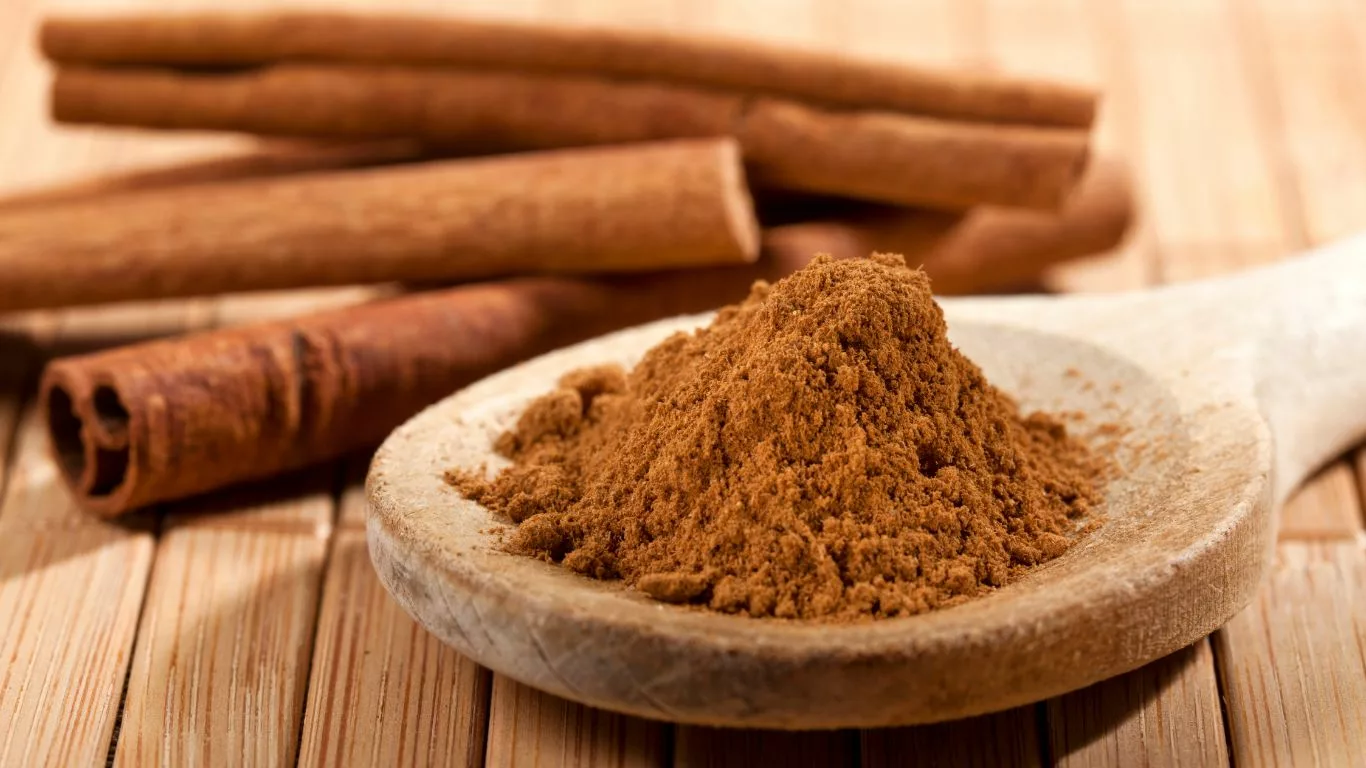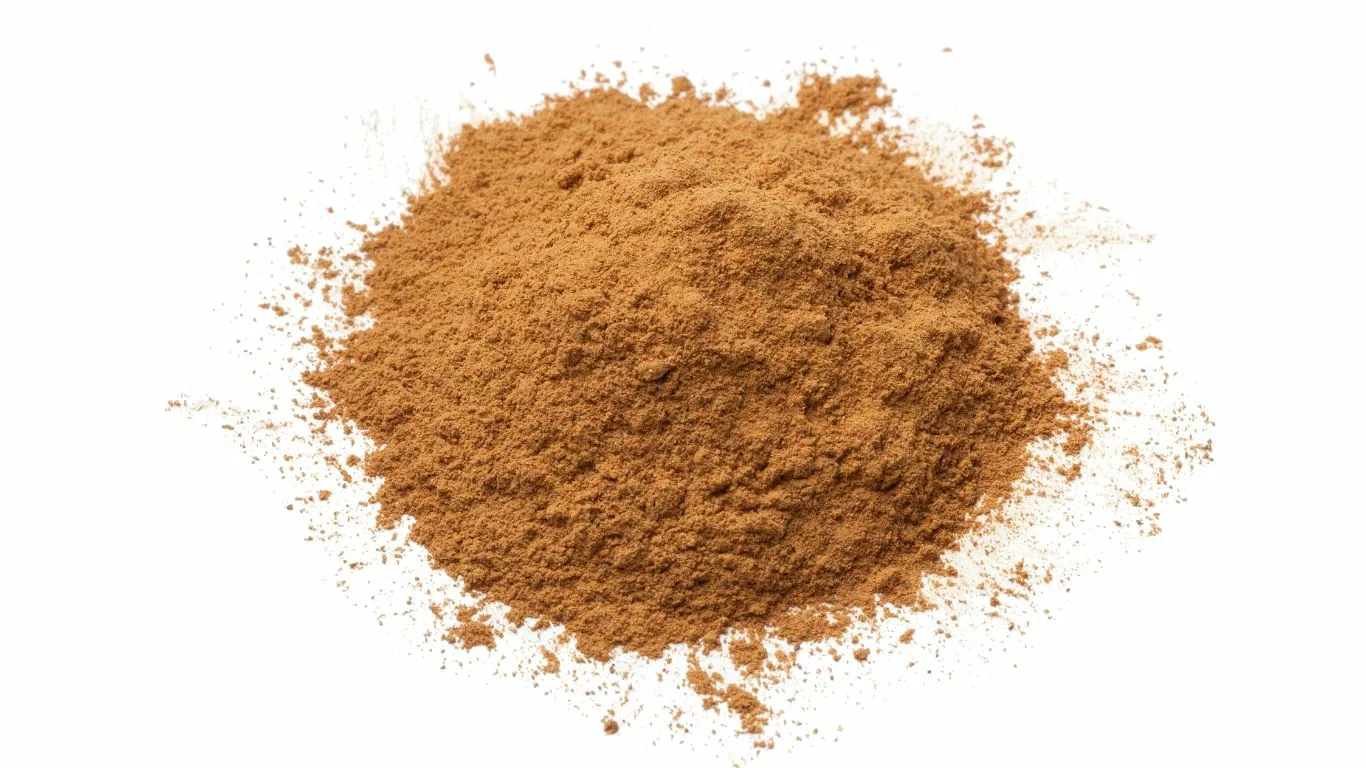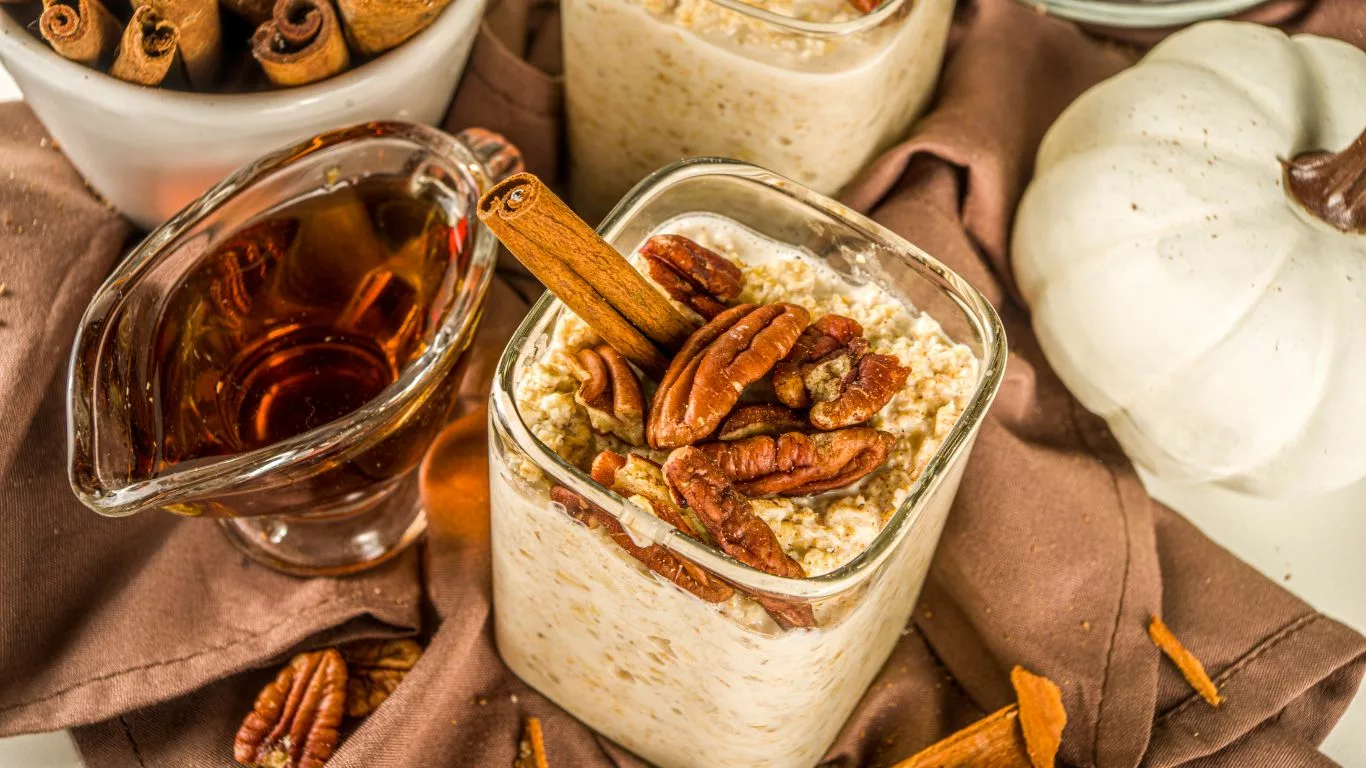Cinnamon for Blood Pressure: Evidence and Impact
Discover the potential impact of cinnamon on blood pressure. Explore evidence and mechanisms, plus diet tips and precautions for effective hypertension management.
High blood pressure, or hypertension, is a prevalent health concern affecting millions of people worldwide. Managing blood pressure is crucial to reduce the risk of cardiovascular diseases and other related health issues. While various lifestyle changes and medications are available to control blood pressure, there has been growing interest in natural remedies like cinnamon. In this comprehensive article, we will explore the potential impact of cinnamon on blood pressure and examine the scientific evidence to determine whether cinnamon can effectively lower blood pressure levels.
Introduction
High blood pressure is a condition in which the force of blood against the artery walls is consistently too high, putting additional strain on the heart and blood vessels. If left uncontrolled, hypertension can lead to severe health complications, including heart attack, stroke, and kidney damage. Therefore, it is essential to manage blood pressure through various means, including diet, exercise, and medication.
One area of interest in blood pressure management is the role of dietary components. Numerous studies have investigated the potential benefits of certain foods and spices, including cinnamon, in regulating blood pressure levels.

Cinnamon and Blood Pressure
Understanding Cinnamon
Cinnamon is a popular spice derived from the inner bark of trees belonging to the Cinnamomum genus. It has been used for centuries in traditional medicine for its various medicinal properties. Apart from its culinary uses, cinnamon has gained attention for its potential health benefits, including its impact on blood pressure.
Historical Use of Cinnamon in Traditional Medicine
Throughout history, various cultures have utilized cinnamon as a remedy for a wide range of health issues, including digestive problems, infections, and inflammation. The traditional medicinal use of cinnamon provides valuable insights into its potential health effects. Ancient civilizations, such as the Egyptians, Greeks, and Chinese, recognized cinnamon’s therapeutic properties and used it to address various ailments. In traditional Chinese medicine, cinnamon was believed to have warming properties, promoting blood circulation and overall vitality. While historical anecdotes are interesting, scientific research provides a more accurate picture of cinnamon’s effects on blood pressure.
Current Research on Cinnamon and Blood Pressure
In recent years, several studies have been conducted to investigate the relationship between cinnamon and blood pressure regulation. These studies have explored the potential mechanisms through which cinnamon may impact blood pressure and the effectiveness of using cinnamon as a natural intervention for hypertension.
One study published in the Journal of the Academy of Nutrition and Dietetics examined the effects of cinnamon supplementation on blood pressure in adults with type 2 diabetes. The results showed that cinnamon supplementation significantly reduced systolic and diastolic blood pressure levels compared to a placebo group. Another study published in the Annals of Family Medicine investigated the effects of cinnamon extract on blood pressure in hypertensive patients. The researchers observed a modest reduction in blood pressure levels after cinnamon supplementation, indicating its potential as a natural intervention for hypertension.

Mechanisms of Cinnamon’s Potential Impact on Blood Pressure
Anti-Inflammatory Properties
Chronic inflammation is believed to play a role in the development and progression of hypertension. Cinnamon contains bioactive compounds with anti-inflammatory properties, such as cinnamaldehyde, which may help reduce inflammation and potentially contribute to blood pressure control. Inflammation can lead to arterial stiffness and impaired endothelial function, contributing to high blood pressure. By reducing inflammation, cinnamon may support overall cardiovascular health and aid in blood pressure management.
Antioxidant Effects
Oxidative stress is another factor implicated in hypertension. Oxidative stress occurs when there is an imbalance between free radicals and antioxidants in the body, leading to cellular damage. Cinnamon is rich in antioxidants, which can neutralize harmful free radicals and protect cells from damage. By combating oxidative stress, cinnamon may promote healthier blood vessels and contribute to improved blood pressure. Studies have shown that cinnamon’s antioxidant properties are attributed to compounds like polyphenols and cinnamaldehyde.
Vasodilation and Improved Circulation
Vasodilation refers to the widening of blood vessels, which can help reduce resistance to blood flow and subsequently lower blood pressure. Some studies suggest that certain components in cinnamon, such as cinnamic acid, may promote vasodilation. This effect may be beneficial for individuals with hypertension, as improved blood flow and circulation can contribute to blood pressure control. Additionally, cinnamon may enhance nitric oxide production, a molecule that helps relax and dilate blood vessels.

Cinnamon’s Active Compounds and Blood Pressure
Cinnamaldehyde
Cinnamaldehyde is one of the key active compounds in cinnamon responsible for its distinctive flavor and aroma. It has demonstrated potential anti-inflammatory and antioxidant effects, which may contribute to its role in blood pressure regulation. In animal studies, cinnamaldehyde has been shown to reduce blood pressure and improve overall cardiovascular health. However, more research is needed to understand its precise mechanisms of action in humans.
Cinnamic Acid
Cinnamic acid is another essential compound found in cinnamon. This phenolic acid has been associated with various health benefits, including potential cardiovascular effects that could be relevant to blood pressure management. Cinnamic acid may support blood vessel health and contribute to improved endothelial function, which is vital for maintaining normal blood pressure levels.
Procyanidins
Procyanidins are a group of polyphenols found in cinnamon that have been linked to improved endothelial function and blood vessel health. Endothelial dysfunction is commonly associated with hypertension, and procyanidins may help address this issue. These compounds may improve nitric oxide availability, leading to vasodilation and reduced blood pressure. Moreover, procyanidins have been shown to exhibit antioxidant and anti-inflammatory properties, further supporting their potential role in blood pressure management.
Cinnamon Polyphenols
Cinnamon is a rich source of polyphenols, which are plant-based compounds known for their antioxidant properties. These polyphenols may contribute to the overall health benefits of cinnamon, potentially impacting blood pressure levels as well. A study published in the Journal of Agricultural and Food Chemistry found that cinnamon polyphenols protected against vascular endothelial dysfunction and reduced blood pressure in hypertensive rats. However, more human studies are needed to confirm these effects.

Studies and Evidence on Cinnamon and Blood Pressure
Human Clinical Trials
Several clinical trials have been conducted to investigate the effects of cinnamon on blood pressure in human subjects. While some studies have shown promising results, others have been inconclusive, highlighting the need for further research and standardization in study protocols. A meta-analysis published in the Journal of the Academy of Nutrition and Dietetics examined the results of ten clinical trials on cinnamon and blood pressure. The analysis concluded that cinnamon supplementation significantly reduced systolic and diastolic blood pressure levels. However, the authors noted variations in the dosage and duration of cinnamon supplementation across the studies, making it challenging to determine the optimal regimen for blood pressure management.
Animal Studies
Animal studies have provided valuable insights into the potential mechanisms of cinnamon’s impact on blood pressure. These experiments have helped identify specific compounds and pathways that might be involved in blood pressure regulation. A study published in the Journal of Medicinal Food investigated the effects of cinnamon extract on blood pressure in spontaneously hypertensive rats. The researchers found that cinnamon extract significantly reduced blood pressure in the hypertensive rats, suggesting that cinnamon may have antihypertensive properties. Animal studies have also demonstrated the potential of cinnamon in reducing oxidative stress and improving endothelial function, contributing to its beneficial effects on blood pressure.
Meta-Analysis and Systematic Reviews
Meta-analyses and systematic reviews pool data from multiple studies to obtain a more comprehensive overview of the evidence. Some meta-analyses have suggested that cinnamon supplementation could lead to modest reductions in blood pressure. However, conflicting results and variations in study methodologies call for more rigorous research to establish a definitive conclusion. A systematic review published in the Cochrane Database of Systematic Reviews examined the effects of cinnamon on blood pressure and other cardiovascular risk factors. The review found limited evidence on cinnamon’s direct impact on blood pressure but acknowledged its potential benefits in improving blood glucose and lipid levels, which indirectly influence blood pressure management.

Recommended Cinnamon Intake for Blood Pressure Management
Daily Dosage Guidelines
If considering cinnamon as a complementary approach to blood pressure management, it is essential to follow recommended dosage guidelines. While there is no standard dosage, most studies have used doses ranging from 500 mg to 2,000 mg of cinnamon extract daily. However, individual responses may vary, and consulting a healthcare professional is advisable before starting any supplement regimen. Additionally, it’s essential to consider the source and purity of the cinnamon supplement to ensure its safety and efficacy.
Possible Side Effects and Precautions
While cinnamon is generally safe for consumption, excessive intake may lead to certain side effects, especially in the form of concentrated supplements. Some people may experience allergic reactions or digestive issues when consuming large quantities of cinnamon. Pregnant women and individuals with liver problems should exercise caution and consult a doctor before using cinnamon supplements regularly. Moreover, cinnamon may interact with certain medications, such as blood thinners, so it’s crucial to seek professional advice before combining cinnamon with other treatments.

Incorporating Cinnamon into Your Diet
Culinary Uses of Cinnamon
One of the simplest ways to include cinnamon in your diet is through culinary applications. Sprinkling cinnamon on oatmeal, yogurt, or adding it to smoothies and baked goods can be a flavorful and healthful addition to your meals. Beyond its delightful taste, incorporating cinnamon into your diet can provide a natural source of essential nutrients like manganese, calcium, and iron.
Cinnamon Supplements vs. Natural Cinnamon
While supplements offer a convenient way to consume cinnamon, obtaining it from natural sources like cinnamon sticks or ground cinnamon provides the added benefits of other nutrients and fiber found in the spice. When using cinnamon as a supplement, opt for high-quality products from reputable brands to ensure purity and efficacy.
Recipes and Ideas to Include Cinnamon in Meals
Get creative with cinnamon by experimenting with various recipes. From savory dishes like Moroccan tagines to sweet treats like apple cinnamon muffins, there are countless ways to incorporate this spice into your daily meals. For a refreshing twist, try adding a dash of cinnamon to your morning coffee or tea for a delightful flavor infusion.

Lifestyle Factors for Blood Pressure Control
Importance of a Balanced Diet
A well-balanced diet, rich in fruits, vegetables, whole grains, lean proteins, and healthy fats, plays a crucial role in overall health, including blood pressure regulation. Combining cinnamon with a balanced diet may provide additional health benefits. Moreover, reducing sodium intake and avoiding processed foods can further support blood pressure management.
Regular Exercise and Its Impact on Blood Pressure
Engaging in regular physical activity is an effective way to manage blood pressure. Exercise helps improve cardiovascular health, enhance blood flow, and reduce stress, all of which can contribute to blood pressure control. Aim for at least 150 minutes of moderate-intensity aerobic activity or 75 minutes of vigorous-intensity aerobic activity per week, along with muscle-strengthening activities on two or more days per week.
Stress Management and Blood Pressure
Chronic stress can lead to elevated blood pressure levels. Finding effective stress management techniques such as meditation, yoga, or spending time in nature can help support healthy blood pressure. Practicing relaxation techniques and mindfulness can also help reduce stress and promote overall well-being.

Consultation with Healthcare Professionals
Talking to a Doctor Before Using Cinnamon for Blood Pressure
If you are considering adding cinnamon to your diet or using cinnamon supplements to manage blood pressure, it is essential to consult your healthcare provider. They can assess your individual health status, medications, and potential interactions before recommending cinnamon as a supplement. Your doctor can also provide personalized guidance on incorporating cinnamon into your overall treatment plan.
Interaction with Medications
Cinnamon, like other natural remedies, may interact with certain medications. For example, cinnamon could enhance the effects of anticoagulant drugs, potentially leading to bleeding issues. Your doctor can help you understand any possible interactions and ensure your safety while using cinnamon for blood pressure management. Always inform your healthcare provider about any supplements you are taking to avoid any adverse effects or interactions with prescribed medications.
Conclusion
In conclusion, while cinnamon has shown promise in some studies as a potential natural remedy for blood pressure management, more research is needed to fully understand its effectiveness and mechanisms of action. Incorporating cinnamon into a balanced diet can be a flavorful way to support overall health, but it should not replace standard treatments for hypertension. As with any health-related decision, it is essential to consult with healthcare professionals for personalized advice and guidance. The combination of a healthy lifestyle, regular exercise, and evidence-based medical treatments remains the cornerstone of effective blood pressure management.

References
- Journal of the Academy of Nutrition and Dietetics: “The effect of cinnamon supplementation on blood pressure in adults: A systematic review and meta-analysis of randomized controlled trials” https://clinicalnutritionespen.com/article/S2405-4577(20)30003-6/fulltext
- Annals of Family Medicine: “Cinnamon effects on blood pressure and metabolic profile: A double-blind, randomized, placebo-controlled trial in patients with stage 1 hypertension” https://www.ncbi.nlm.nih.gov/pmc/articles/PMC7885002/
- Journal of Medicinal Food: “Effect of oral cinnamon intervention on metabolic profile and body composition of Asian Indians with metabolic syndrome: a randomized double -blind control trial” https://lipidworld.biomedcentral.com/articles/10.1186/s12944-017-0504-8
- Journal of Agricultural and Food Chemistry: “Beneficial effects of cinnamon and its extracts in the management of cardiovascular diseases and diabetesBeneficial effects of cinnamon and its extracts in the management of cardiovascular diseases and diabetes” https://pubs.rsc.org/en/content/articlehtml/2021/fo/d1fo01935j
- Cochrane Database of Systematic Reviews: “Chapter 29 – Beneficial effects of cinnamon on cardiovascular risk factors and type 2 diabetes” https://www.sciencedirect.com/science/article/abs/pii/B9780128198155000070
Disclaimer: The information provided in this article is for educational purposes only and should not be considered as medical advice. Always consult with a qualified healthcare professional before making any changes to your diet or treatment plan, especially if you have a medical condition or are taking medications.

Camellia Wulansari is a dedicated Medical Assistant at a local clinic and a passionate health writer at Healthusias.com. With years of hands-on experience in patient care and a deep interest in preventive medicine, she bridges the gap between clinical knowledge and accessible health information. Camellia specializes in writing about digestive health, chronic conditions like GERD and hypertension, respiratory issues, and autoimmune diseases, aiming to empower readers with practical, easy-to-understand insights. When she’s not assisting patients or writing, you’ll find her enjoying quiet mornings with coffee and a medical journal in hand—or jamming to her favorite metal band, Lamb of God.







